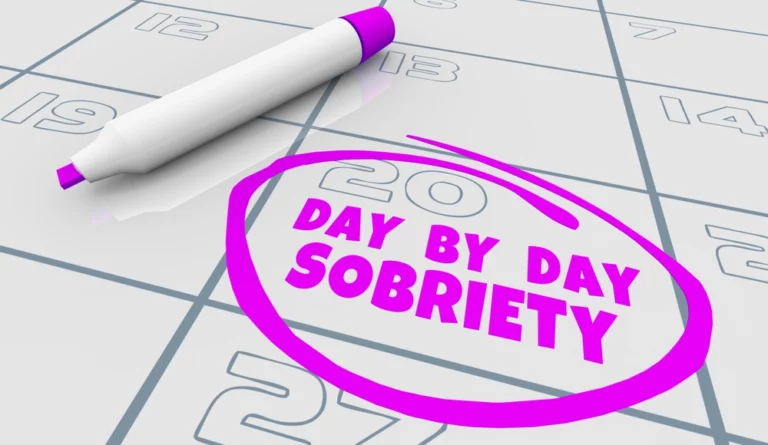In the journey toward recovery from addiction, achieving physical sobriety is a monumental accomplishment. It often marks the beginning of a transformative process in which individuals break free from the grip of substance abuse, allowing their bodies to heal from the physical effects of addiction. However, while physical sobriety is an essential first step, there is an equally important aspect that can further sustain this journey—emotional sobriety.
Emotional sobriety refers to the ability to maintain emotional stability, resilience, and balance in the face of life’s challenges. It is about developing the skills and emotional intelligence needed to handle feelings and reactions without turning to substances as a way to cope. For many people recovering from addiction, emotional sobriety is crucial because emotional triggers can often lead to relapse. This deeper sense of emotional well-being allows individuals to process their emotions in healthy ways, build strong coping strategies, and find inner peace without relying on alcohol or drugs.
Emotional sobriety works in tandem with physical sobriety, helping individuals manage stress, anxiety, anger, or sadness in ways that support long-term recovery. By fostering emotional resilience, a person in recovery can build stronger relationships, feel more connected to themselves and others, and find a greater sense of purpose in life. It’s not just about avoiding relapse—it’s about cultivating a fulfilling life where one can thrive emotionally, mentally, and physically.
In this article, we’ll explore how emotional sobriety complements physical sobriety, aids in facing addiction, and impacts overall well-being. By understanding the connection between these two aspects of recovery, individuals can approach their healing journey with a more holistic perspective, leading to a greater chance of lasting success.

Understanding Emotional Sobriety
Emotional sobriety is often described as an advanced stage of recovery that goes beyond abstaining from substance use. It involves developing the skills and mindset necessary to manage emotions effectively without resorting to unhealthy coping mechanisms.
What Is Emotional Sobriety?
Emotional sobriety is the ongoing and deeply transformative process of understanding, managing, and regulating one’s emotions to foster greater mental and emotional well-being. It goes beyond the mere avoidance of substances or addictive behaviors; it is about cultivating a profound and authentic sense of inner peace, stability, and resilience.
This journey requires a commitment to self-awareness, where individuals learn to recognize and honor their emotions without being overwhelmed or controlled by them. It involves developing healthy coping mechanisms to navigate life’s inevitable challenges, setbacks, and stressors without resorting to destructive habits or emotional escapes.
At its core, emotional sobriety is about building a balanced relationship with oneself and others. It means learning to sit with discomfort, process pain, and embrace vulnerability rather than numbing or avoiding these experiences. This process often involves unlearning old patterns of behavior, such as suppressing emotions or reacting impulsively, and replacing them with healthier, more intentional responses. It requires patience, self-compassion, and a willingness to confront difficult truths about oneself.
Emotional sobriety also emphasizes the importance of creating a life filled with meaning, connection, and purpose. It encourages individuals to cultivate practices that nurture their emotional health, such as mindfulness, therapy, journaling, or engaging in supportive relationships. By doing so, they can develop a stronger sense of self and a greater capacity to handle life’s ups and downs with grace and equanimity.
Ultimately, emotional sobriety is not a destination but a continuous journey of growth and self-discovery. It is about finding balance in the midst of chaos, embracing both the light and dark aspects of the human experience, and building a foundation of emotional strength that allows for a more fulfilling and authentic life. Through this process, individuals can move beyond mere survival and begin to thrive, creating a life that is not only free from destructive habits but also rich with joy, connection, and purpose.
The Role of Emotional Sobriety in Recovery
Emotional sobriety plays a critical and multifaceted role in the recovery process, serving as a cornerstone for lasting healing and personal growth. At its heart, emotional sobriety fosters emotional intelligence, which is the ability to recognize, understand, and manage one’s own emotions, as well as empathize with the emotions of others.
This heightened emotional awareness allows individuals in recovery to move beyond surface-level reactions and delve deeper into the root causes of their feelings and behaviors. By gaining insight into their emotional triggers, patterns, and vulnerabilities, they can begin to break free from the cycles of impulsivity, avoidance, or self-destructive tendencies that may have characterized their past.
With this deeper understanding of their emotions, individuals in recovery are better equipped to develop healthier, more intentional responses to stress, triggers, and interpersonal conflicts. For example, instead of reacting to a stressful situation with anger or reaching for a substance to numb discomfort, they can pause, reflect, and choose a response that aligns with their values and long-term well-being.
This shift from reactive to proactive behavior is a hallmark of emotional sobriety and is essential for maintaining physical sobriety. After all, unresolved emotional pain or unchecked stress can often become a catalyst for relapse, making emotional sobriety a vital safeguard in the recovery journey.
Moreover, this approach to sobriety empowers individuals to build stronger, more authentic relationships with others. Recovery is not just about abstaining from substances; it is also about repairing and nurturing connections that may have been damaged by past behaviors.
By developing emotional intelligence, individuals can communicate more effectively, set healthy boundaries, and navigate conflicts with greater empathy and understanding. This relational healing not only supports recovery but also contributes to a sense of belonging and community, which are crucial for long-term sobriety.
This kind of sobriety also encourages individuals to embrace self-compassion and forgiveness, both of which are essential for overcoming shame and guilt that often accompany addiction. By learning to treat themselves with kindness and understanding, they can release the weight of past mistakes and focus on building a brighter, more hopeful future. This inner work is not easy, but it is deeply transformative, allowing individuals to reclaim their sense of self-worth and agency.
In essence, emotional sobriety is not just a complement to physical sobriety—it is its foundation. It equips individuals with the tools they need to navigate the complexities of life without resorting to old, harmful habits. By fostering emotional intelligence, resilience, and healthier coping mechanisms, this type of sobriety helps individuals in recovery not only survive but thrive. It enables them to face life’s challenges with courage and grace, creating a sustainable path toward holistic well-being and a fulfilling, substance-free life.

How Emotional Sobriety Supports Physical Sobriety
The synergy between emotional and physical sobriety creates a more robust foundation for long-term recovery.
Managing Triggers and Stress
Emotional sobriety empowers individuals to recognize and manage triggers effectively. By maintaining emotional balance, individuals can reduce the risk of relapse triggered by stress or negative emotions, thus reinforcing their physical sobriety.
Enhancing Resilience
Practicing emotional sobriety builds resilience, which is vital in facing everyday challenges and setbacks. With this resilience, individuals are better equipped to cope with life’s ups and downs without compromising their commitment to physical sobriety.
Promoting Healthy Relationships
Emotional sobriety fosters improved communication skills and empathy, leading to healthier relationships. Strong, supportive relationships provide a network of care that is crucial during recovery, offering support and accountability to achieve physical sobriety.
Cultivating Emotional Sobriety
Fostering emotional sobriety involves cultivating specific attributes and practices that support emotional well-being and sobriety.
Attributes of Someone Practicing Emotional Sobriety
Individuals practicing emotional sobriety often demonstrate greater self-awareness, patience, and a balanced outlook on life. They are equipped with healthier coping mechanisms, which enables them to navigate emotional turbulence without substance reliance.
Mindfulness and Reflection
Regular mindfulness practices, such as meditation or journaling, help individuals maintain focus on the present moment, allowing them to process emotions constructively. Reflective practices can guide individuals in understanding their emotional patterns and making conscious, supportive choices.
Building Emotional Support Systems
Surrounding oneself with a trusted network of friends, family, or support groups can provide emotional assistance and strength. Sharing experiences and feelings in a safe space helps reinforce emotional sobriety and complements physical recovery efforts.

Frequently Asked Questions About Emotional Sobriety
To better understand emotional sobriety, here are some commonly asked questions with detailed answers.
What Is Emotional Sobriety?
Emotional sobriety is the ability to maintain equilibrium in emotional well-being. It involves understanding one’s emotions and managing them effectively to support recovery from addiction and deepen overall life satisfaction.
How Can Emotional Sobriety Help Me on the Road to Recovery?
Emotional sobriety supports recovery by enabling individuals to handle stress, triggers, and conflicts without succumbing to substance use. It fosters resilience and strengthens coping mechanisms, crucial for sustaining sobriety.
How Can Emotional Sobriety Help Me Better Face My Addiction?
By developing emotional sobriety, individuals gain insight into their emotions and motivations, allowing them to confront addiction triggers with clarity and strength. This empowers transformative progress in recovery.
Embracing Emotional Sobriety on Your Recovery Journey
Emotional sobriety is an essential part of recovery that goes hand-in-hand with physical sobriety. It equips individuals with the emotional intelligence and resilience needed to face addiction and life’s challenges with confidence and strength. If you’re ready to embrace the full potential of your recovery journey and develop emotional and physical sobriety, contact us at the Knoxville Recovery Center or call us directly for guidance and support. Our compassionate team is here to help you build a balanced and fulfilling life in sobriety.








